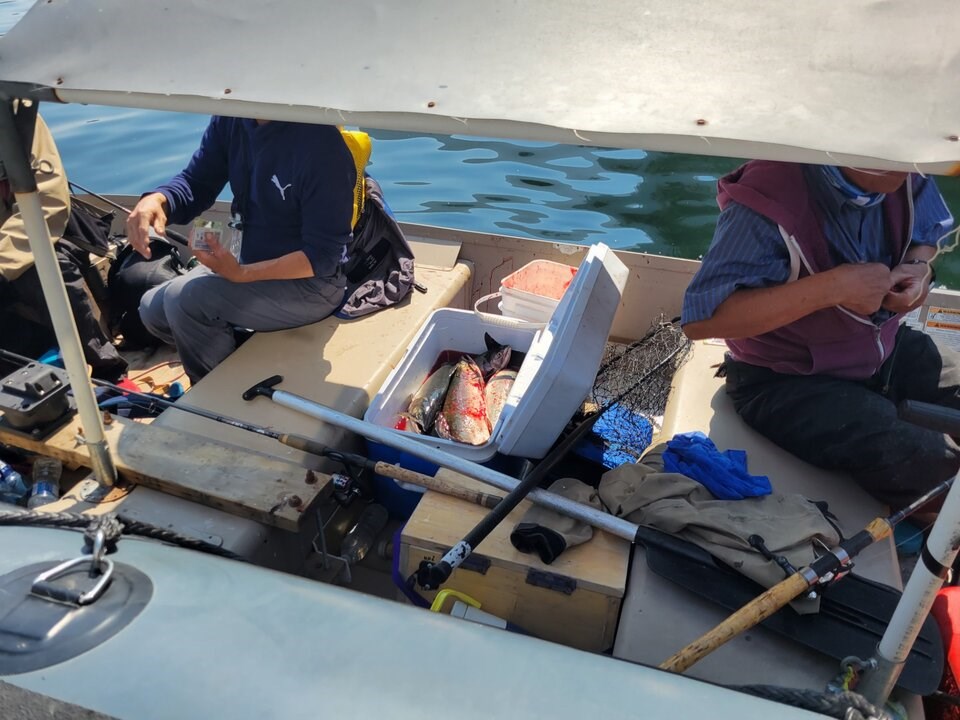Federal fishery officers in Metro Vancouver are warning the public after a rise in “rampant illegal fishing” have threatened areas set aside for endangered fish species and led to tens of thousands of dollars in fines.
The warning comes amid a bumper year for pink salmon across B.C. In Metro Vancouver’s Burrard Inlet and Indian Arm, the waters have filled with the salmon species as they move to spawn upriver.
“It’s just bubbling with pink salmon,” said conservation and protection fishery officer Art Demsky. “There’s many, many hundreds of thousands in there.”
“People... drive through there and they see all of them, all the salmon jumping, and I guess they're like a firefly to a bright light… they can't resist throwing their rods in and trying to catch the salmon there.”
The only problem is that the narrow waters of Indian Arm contain three of the 162 Rockfish Conservation Areas (RCAs) scattered across the province.
Covering 4,800 km of coastal waters, RCAs represent one of the largest marine networks of conservation-based fisheries closures in British Columbia. They are set up to protect 38 species of rockfish, some that live for more than 100 years, but are very slow to reproduce.
With the pink come more boats and more fishers — many without licences, others who regularly take double their legal allowance of salmon, and still more who are fishing in the prohibited RCAs.
“It’s unbelievable how many people don’t have a licence,” said the detachment commander, who leads a team covering an area stretching up to Abbotsford.
Describing it as a “cat and mouse game,” Demsky says when the fishery officers arrive in the area, dozens of boats scatter and they often can only catch one.
In the last week, he says they have handed out upwards of three dozen $575 fines for illegal fishing, amounting to tens of thousands of dollars. But his bigger concern is the impact it could be having on the rockfish.
“All the local species of rockfish are [at] critical low numbers. They have a tendency to live a very long time because they're very, very slow growing, which also means they don't go spawn for the first time until they're quite old,” Demsky said.
“We’re harassing them, killing them, taking them off the grounds where they live. That’s not going to help the population.”
One problem the fishery officers have come across are fishers using barbed hooks to catch the salmon. Barbed hooks are prohibited so young salmon can be let go if they’re accidentally caught. And while jjigging a hook near the sea floor is often the most popular style for fishing pink salmon, it can also easily hook a rockfish.
Rockfish are vulnerable to changes in barometric pressure. When one is pulled to the surface, their air bladder can expand uncontrollably, so that even if it's released, the rockfish struggle to swim back to the bottom where they live.
“A lot of them die or predators will scoop them up, eagles or seals or whatever, because they are kind of floating on the surface,” said Demsky.
The arrival of so many pink salmon has buoyed many experts’ hopes conservation efforts are working. That's led many to take advantage of the large number of returning fish while following the law. But Demsky says the abundance has also drawn many who would prefer to flout fishery regulations meant to ensure the long-term return of fish populations.
People who want to fish but remain unsure of regulations and licensing requirements can consult the federal fisheries website. Anyone who witnesses someone carrying out an egregious fisheries violation is encouraged to call DFO's toll-free anonymous reporting line at 1-800-465-4336, or send an email to [email protected].
“It helps us a lot because we don't have an awful lot of officers,” Demsky said. “We obviously can't be everywhere all at once.”



